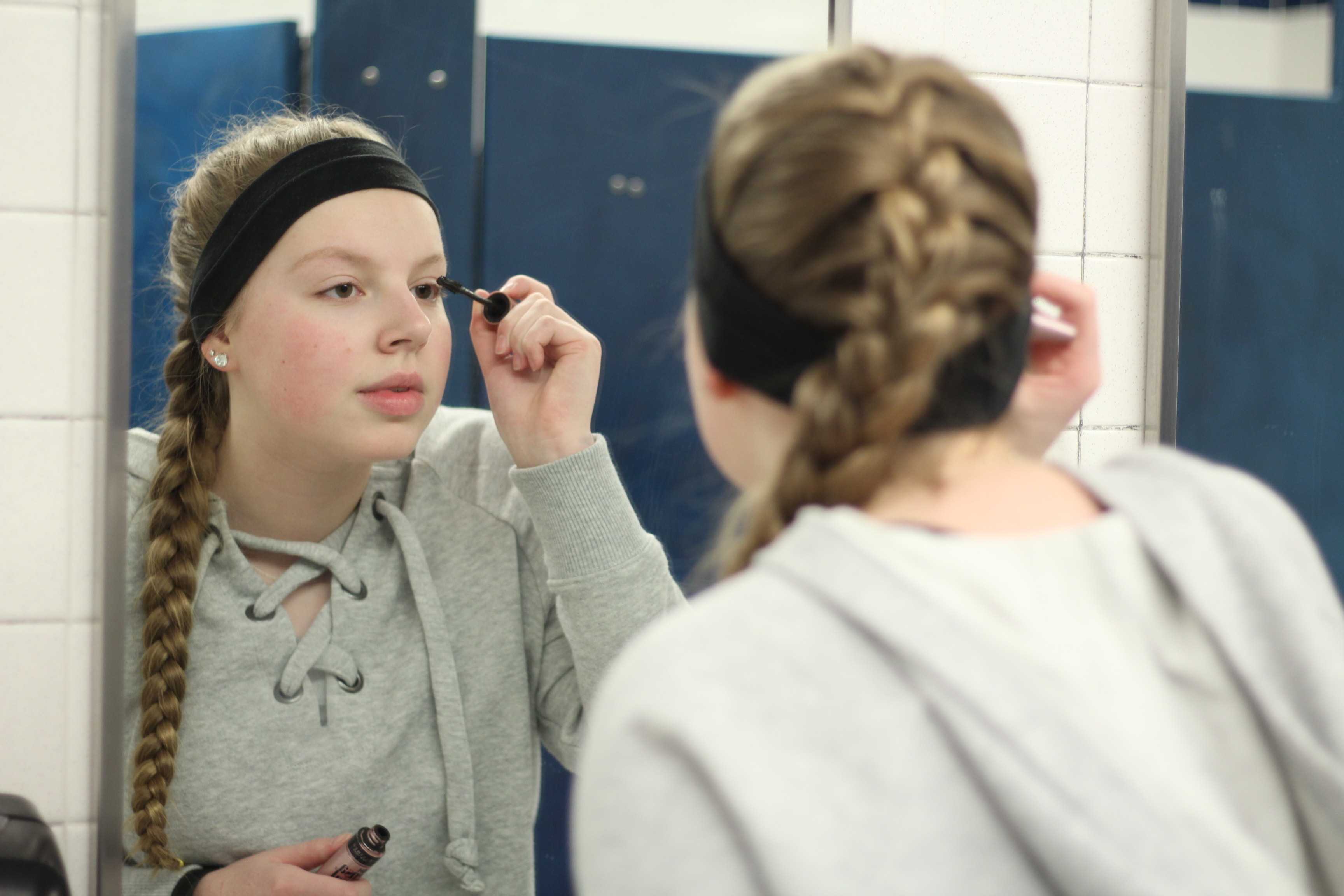
It’s an average afternoon for a sixteen-year-old girl, she is sitting in bed after school scrolling through her Instagram feed full of perfectly photoshopped models. She checks her calorie tracking app and starts to panic when she sees that she ate over 12 hundred calories. She skips dinner and stays in bed all night wishing that she looked as beautiful as the girls on Instagram and regretting what she ate that day.
Currently 95 percent of young girls with eating disorders such as anorexia, bulimia and binge eating disorders are between the ages of twelve and twenty five, according to the Huffington Post. These disorders are caused by the unrealistic societal standards that have been created over time. Young girls want to match the ideal body image so much that they create bad habits and force themselves into diets that don’t nourish their bodies. They also obsess over unrealistic goals and complete grueling amounts of exercise.
Junior Stephanie Hoogerheide said, “I think that it’s not right for society to be pushing young girls and teens to try to be perfect because no one is perfect. We shouldn’t have to fit into a certain image, and we should want to be who we are without wanting to be someone else.”
Social media perpetuates trends that encourage women to work out, try fad diets and use ridiculous products like waist-trainers. Waist-trainers are steel boned corsets that are worn around the midsection that supposedly help to shape your waist into an hourglass figure. Also, many women base their careers off of dieting and exercising to raise money by posting pictures of themselves, and marketing the latest fat loss products and skinny teas, which are promoted on social media platforms that include multiple teas, extracts and herbs that are supposed to help people lose weight.
“Instead of wanting to work out and eat healthy just to take care of your own well being, many people are doing it [publicizing a healthy lifestyle] just to say they are and to take a mirror selfie at the gym or eat a healthy salad to post on social media,” said junior Zoe Srackangast.
Some of these standards enforced by social media go unnoticed everyday. Think about this: almost every movie that you watch features a female love interest that has pretty long hair, is skinny and is desired by every guy. Almost every commercial on TV has a family with perfect looking kids and seemingly great parents. These aren’t just coincidences; media sources purposely project these images to show the standard of beauty that is expected out of young girls.
Zoe wants young women to be themselves and ignore societies harsh standards.
“I think that our current society and social media is causing girls to act unnatural or not be their true selves just to fit in with their friends or social standards.” Zoe continued with her concerns, “I think that it’s also causing more anxiety and mental problems in girls with the idea that you’re not good enough and aren’t perfect. It has changed what motivates people.”
Not only do young girls believe that they have to excessively exercise and eat next to nothing, but the media has portrayed beautiful women as only those with a big butt, a small waist and a perfected face of makeup. This has created an expectation for young girls that defeats their self-confidence.
English teacher Anne Bowser said, “I’m not sure it [society’s standards] has changed as much as you might think. I think that women have always been required to be concerned with how they look, more so than men. I’m not talking about hygiene, I’m talking about how one presents oneself. What you highlight in yourself is what you’re presenting to the world. The fact that this is happening with younger girls is the problem.” Bowser continued, “What we don’t realize is that we tend to … ourselves by saying, ‘I can make my eyebrows look this way or my lips this way.’ That’s the problem.”
We as young women can try to uplift each other by doing the little things like giving out compliments about someone’s talents or skills in a subject, rather than just how they look or what they are wearing. That takes less than thirty seconds out of your day. Also, young women can try to take the media with a grain of salt. We need to have a filter for the media and realize that most of these women are photoshopped, and these ideas of women are unrealistic. No one needs to conform to societal standards created by social media to be deemed beautiful or liked by others.
We have to realize that every single one of us is beautiful and we are all unique, and the things we like and our personalities are more important than how we look. Everyone has their own journey to self-love and that is okay.








TheSociologicalMail • Jul 2, 2018 at 2:51 pm
Very interesting